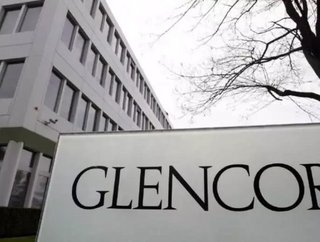Glencore Enters New Era with Oracle Exadata as Platform of Choice

Housed between the towering peaks of the Swiss Alps and the rugged Jura Mountains, lies a sleeping giant: Glencore International PLC. Regarded across the globe as a leader in mining and commodity trading, Glencore operates around the clock, seven days a week, to produce an expansive amount of metals and minerals, energy and agricultural products.
Founded in 1974 by Marc Rich in Switzerland, the company has evolved from initially focusing on the physical market of metals, minerals and crude oil into a diversified natural resources group through acquisitions of farming, mining, smelting, refining and processing reduction assets.
A commodity marketer such as Glencore needs to be capable of making the proper decisions based on the latest information available. Market volatility, weather conditions and political uncertainties are just a few factors that can drive a trader to success or failure. But, thanks largely in part to early adoptions of technologies that bring a competitive edge to Glencore’s IT infrastructure, this giant is one that will remain a force to be reckoned with.
Glencore runs a solid backbone of trading and risk management platforms and reporting databases. In fact, more than 200 different IT solutions operate at Glencore on a daily basis, allowing for a dynamic decision making process when it comes to the company’s global distribution business. But one platform is turning the company into a data powerhouse.
Oracle Exadata – a database appliance with support for both transactional and analytical database systems – was incorporated by Glencore last year upon careful review and consideration.
“We considered Oracle Exadata solutions before it gets fully certified on SAP ECC 6.0, enabling a leading edge solution to support a major accounting program change, but certification was an essential prerequisite for our company,” stated Sveto Putincanin, head of IT engineering and operations at Glencore, in a report.
According to Oracle, Oracle Exadata’s architecture features scale-out industry-standard database servers, intelligent storage servers, and a high-speed InfiniBand internal fabric that connects all servers and storage.
Upon acceptance of the system, Glencore began a complete roll-out of the platform, upgrading its global data warehouse environment to the new, SAP-based global financial solution with the Oracle Exadata Database Machine.
The roll-out program was completed in two phases: incorporation and deployment. The first deployment exceeded Glencore’s expectations as it harmonized with the current platforms Glencore had in place and increased performance almost instantaneously. Key complexity was visibly reduced, simplifying the operating system and removing administration from the equation. Oracle Exadata alone replaced production, testing and development machines with an adequate SAN environment.
Prior to integration, reports were generated overnight due to the mass amount of data received and processed, now, with Oracle Exadata, Glencore is able to turn around information in less than an hour.
“This is very valuable in our competitive industry which depends heavily on market information and how you can anticipate change. Being able to quantify and correlate any technical improvement with the Glencore overall financial performance is quite difficult. Nevertheless, I consider that we have today a key component for future successes,” said Cyril Reol, CIO of Glencore.
“We saved on resources as well, particularly as the platform only needs to be administered by one team instead of four previously. It will clearly pay off in all our subsequent activities,” added Putincanin.
Glencore’s Global Accounting Program aimed to streamline its accounting and financial processes worldwide and was initially deployed in their headquarters of Baar, Switzerland for its global metal, minerals and coal market.
The program has since been instituted across other operations, including oil and gas divisions in the United Kingdom, United States and Singapore, and their agricultural business in The Netherlands.
“We now have a SAP-certified solution and a single provider supplying the operational support for all its components. Additionally, we can administer and further develop our IT infrastructure more efficiently thanks to the Oracle Exadata solution, making our team even more effective in the future,” said Putincanin.
By embracing Oracle Exadata, Glencore achieved multiple successes. Users can now more quickly access the reports they need to market their products in the best way; both hardware and software components interoperate seamlessly; and system operation is simpler overall as the server, operating system, firmware and storage are perfectly aligned.
Glencore is the third largest global mining company by market capitalization, producing and marketing over 90 bulk commodities in over 50 countries. As a fast-growing, successful company, Glencore consistently relies on the latest technologies to improve its competitive edge.
“As a leading integrated commodities producer and marketer, we need to source, process, refine, transport, store, finance and supply materials needed by industries around the world. Consequently, each decision related to performance maximization becomes more critical and complex, particularly in today’s outlook. Oracle Exadata is the best solution to ensure optimal performance and a fully integrated platform that will support our company’s fast growing pace and success story,” concluded Reol.






